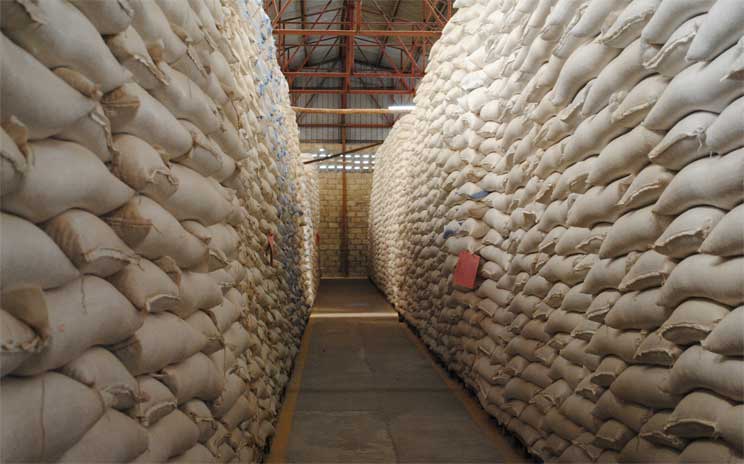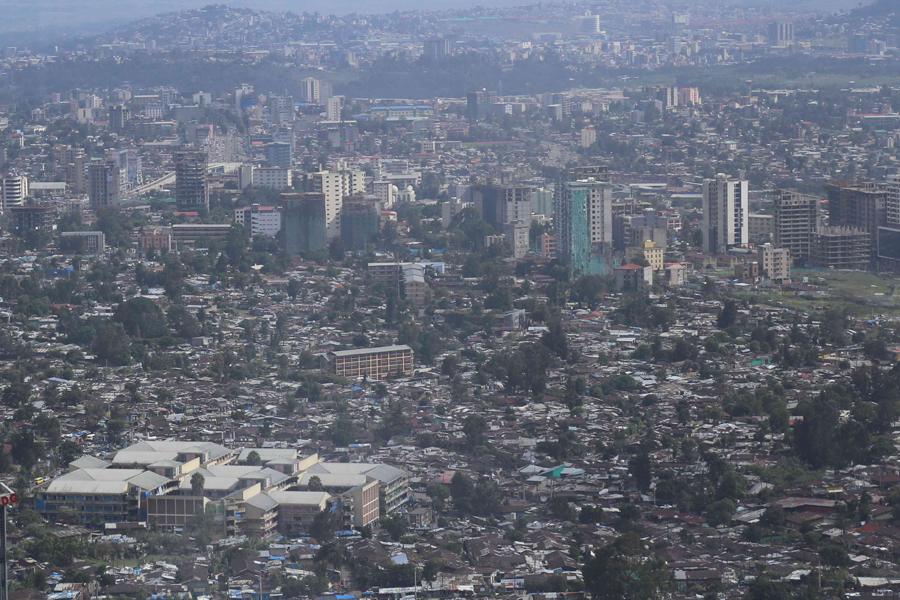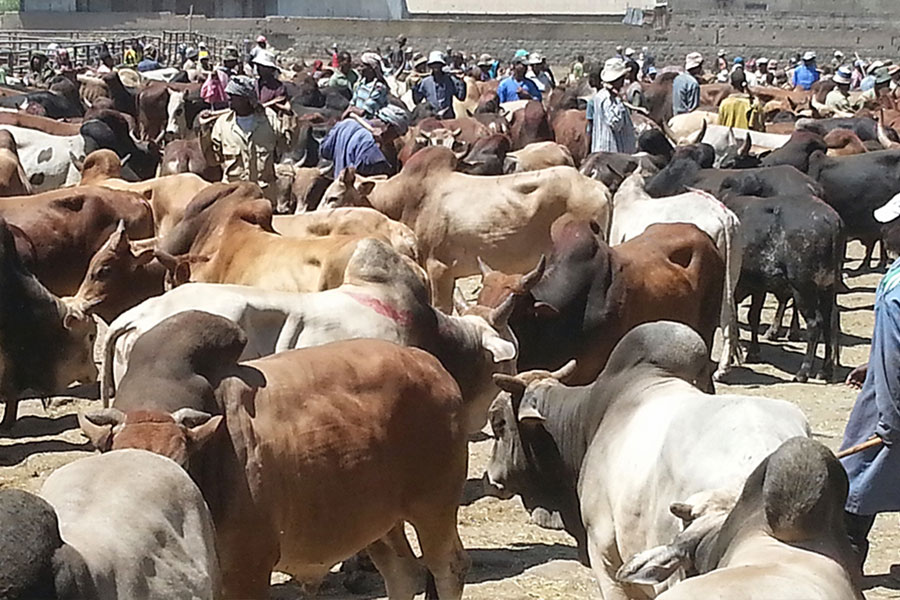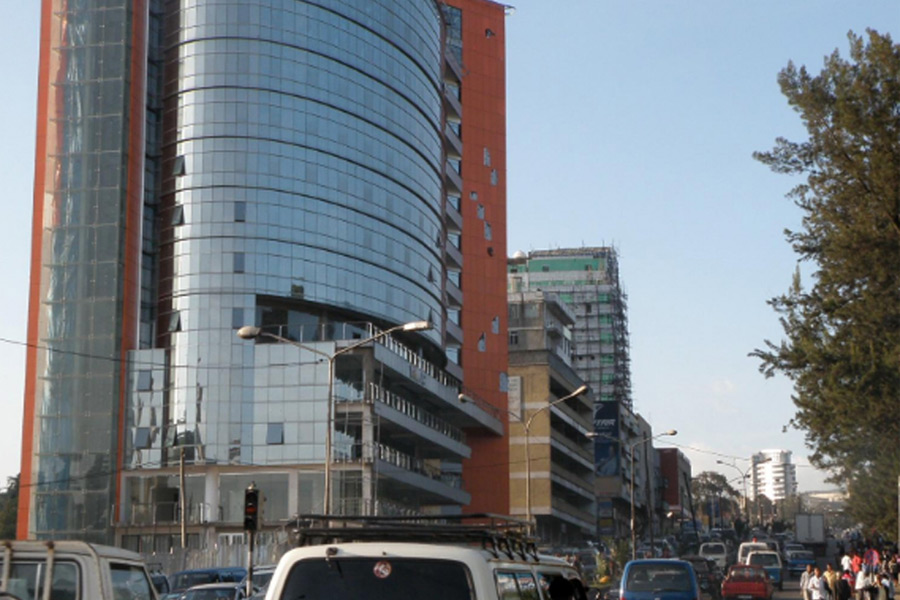
Radar | Oct 17,2020
Sep 21 , 2019
By SELAMAWIT MENGESAHA ( FORTUNE STAFF WRITER )
 On behalf of the Ministry of Trade & Industry, the Public Procurement & Property Disposal Services announced a tender two weeks ago inviting companies to supply wheat that will be used for market stabilisation. The financial opening of the bidders is scheduled to take place on October 23, 2019.
On behalf of the Ministry of Trade & Industry, the Public Procurement & Property Disposal Services announced a tender two weeks ago inviting companies to supply wheat that will be used for market stabilisation. The financial opening of the bidders is scheduled to take place on October 23, 2019. The government has started the process of procuring four million quintals of wheat worth an estimated 3.4 billion Br to curb the sharp shortage of milling wheat in the market.
On behalf of the Ministry of Trade & Industry, the Public Procurement & Property Disposal Services announced a tender two weeks ago inviting companies to supply wheat that will be used for market stabilisation. The financial opening of the bidders is scheduled to take place on October 23, 2019.
The first wheat procurement of the current fiscal year aims at stabilising the shortage of wheat in the local milling and bakery industries. A total of 1,650 bakeries and 44 wheat flour factories are registered in the capital. Ethiopian Business Corporation will be responsible for the distribution of the wheat.
In the last fiscal year, the Services procured 1.7 million tonnes of wheat from four international companies on behalf of Ethiopian Business Corporation, the National Disaster Risk Management Commission and the Ministry of Agriculture. For the procured wheat, the government spent 11.1 billion Br.
Gem Corp Commodities Trading and Agro Corp International PTE supplied 1.6 million tonnes of wheat at a cost of 9.6 billion Br. The wheat was distributed by Ethiopian Business Corporation and the National Disaster Risk Management Commission. The Ministry of Agriculture distributed the 155,000tn of wheat supplied by Promising International Trading and Hakan Agro DMCC for 1.4 billion.
This wheat was imported into the country that is identified as the largest wheat producer in Sub-Saharan Africa. In the 2017/18 harvest year, Ethiopia produced 4.5 million tonnes of wheat. Arsi, Bale and Shewa are the major areas known for wheat production. The grain was cultivated by 4.7 million smallholder farmers who occupy 1.7 million hectares of land.
Out of the total production, 95pc of the wheat comes from smallholder farmers who are dependent on rain, whereas the remaining five percent is from large commercial farms.
Studies show that 59pc of the wheat produced in the country is for consumption by the farmers, while 20pc goes to the market, and the rest is used for seed production. From the total, annual consumption of wheat amounted to 6.3 million tonnes, with 30 to 35pc of the demand covered by imported wheat.
The shortage of wheat has a more significant impact on the life of households in the developing nation, according to Mohammed Aman, assistant professor at the School of Agriculture Economics & Agribusiness under Haromaya University.
“Wheat-based foods hold the major share of household diets,” he said, “thus, increases in wheat prices and market destabilisation will have noticeable effects on the cost of food.”
The government has to work on increasing the number of suppliers when there is a shortage of wheat, he recommended.
PUBLISHED ON
Sep 21,2019 [ VOL
20 , NO
1012]

Radar | Oct 17,2020

Radar | Jan 28,2023

Fortune News | Feb 15,2020

Fortune News | Jul 22,2023

Radar | Jan 19,2019

Fortune News | Jan 25,2020

Fortune News | Jan 29,2022

Fortune News | Feb 09,2019

Radar | Nov 07,2020

Radar | Jul 27,2025

Dec 22 , 2024 . By TIZITA SHEWAFERAW
Charged with transforming colossal state-owned enterprises into modern and competitiv...

Aug 18 , 2024 . By AKSAH ITALO
Although predictable Yonas Zerihun's job in the ride-hailing service is not immune to...

Jul 28 , 2024 . By TIZITA SHEWAFERAW
Unhabitual, perhaps too many, Samuel Gebreyohannes, 38, used to occasionally enjoy a couple of beers at breakfast. However, he recently swit...

Jul 13 , 2024 . By AKSAH ITALO
Investors who rely on tractors, trucks, and field vehicles for commuting, transporting commodities, and f...

Oct 25 , 2025
The regulatory machinery is on overdrive. In only two years, no fewer than 35 new pro...

Oct 18 , 2025
The political establishment, notably the ruling party and its top brass, has become p...

Oct 11 , 2025
Ladislas Farago, a roving Associated Press (AP) correspondent, arrived in Ethiopia in...

Oct 4 , 2025
Eyob Tekalegn (PhD) had been in the Governor's chair for only weeks when, on Septembe...